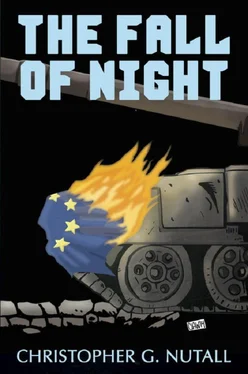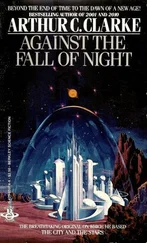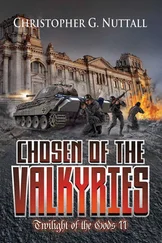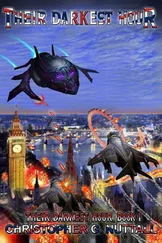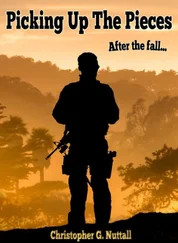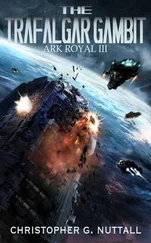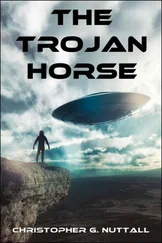I wrote The Fall of Night in 2009. Now, if anything, it has become even more relevant.
The tactics I had the Russians use are ones they planned to use during the Cold War, merely modified to some extent. They intended to use commandoes, they intended to incite radical factions to war, they intended to use terror tactics… and they intended to put down all resistance swiftly and effectively. And how would such tactics work if aimed at a society as open as our own?
* * *
The world is a dangerous place. If anything, the end of the Cold War — while removing the threat of mutual nuclear annihilation — has made the world far more dangerous, while the spread of modern transport technology has lowered the distance from one side of the world to the other. A problem that would once have remained localised — the Iraqi Invasion of Kuwait, for example — now takes on global implications. A band of terrorists hiding in caves in Afghanistan can hijack aircraft and slam them into towers in a city on the other side of the world. And a bunch of pathetic cartoons (and some astute political manipulation) can trigger off riots all over the world.
Nor is it lawful. Law is effective only as long as it can be enforced — and so-called international law has rarely been enforced. Dictators such as Saddam mocked international standards of decency simply by existing; states such as Saudi Arabia, Iran and North Korea spit in the face of any concept of international human rights. International law could only be made workable if there was a force with both the capability and will to uphold the law. There is no such force. Nor is one likely to exist. The Western faith in international law is, at best, naive. The response from a dictator to demands that he comply with the law is going to boil down to ‘ oh, yeah? Make me .’
And yet, successive British governments seem unwilling to face up to the simple fact that the world is dangerous.
It is absurd beyond belief, despite the assertions of several politicians, that we can stay out of the War on Terror. Even if we hadn’t joined the American invasion of Afghanistan (and later Iraq) we would still be targeted by terrorists. We would be targeted because we are a liberal free country with freedom of religion, freedom of the press, sexual freedom… all freedoms that are anthemia to our enemies. Indeed, we would be targeted because we represent a better way to live than a return to doctrines that were little more than attempts to impose a standard of behaviour on an entire population. The terrorists hate our freedoms because we might well seduce their potential recruits away from them.
Nor are terrorists the only threat facing Britain’s security. We have dependencies in various global locations that are threatened, constantly, by nearby states. Despite losing the last war — despite the oft-expressed wishes of the population — the Falkland Islands are still claimed by Argentina. Gibraltar, too, has been claimed by Spain. Indeed, in both cases, the wishes of the local population have not been taken into account by the hostile power. The belief that they would be taken into account is, like the faith in international law, the refuge of fools.
Yet we persist in making heavy cuts to our military capabilities. Right now, Britain does not have a single aircraft carrier. Furthermore, we have made serious cuts in our infantry, navy and other deployable forces. Indeed, if we were forced to refight the Falklands War, we might well find ourselves incapable of doing anything more than blockading Argentina with submarines. Maybe it would work, but I wouldn't care to bet on it.
Worse, perhaps, we have created a colossal military bureaucracy that has dampened our ability to fight and signed international treaties that cripple our ability to wage war. Despite having (at least at present) the fourth-largest defence budget in the world, our forces have been badly weakened and our ability to take part in campaigns (like the war in Libya) severely hampered.
Worst of all, the military convent has been shattered. Soldiers returning home from the wars, having taken ghastly wounds in the fighting, have had to endure endless torment from government bureaucracies just to get treatment. Some of the unwounded soldiers are getting out, fearing the care (or lack thereof) that they would receive if they are wounded. If that wasn't enough of a problem, the cuts (which are aimed at the soldiers rather than the excessive number of senior officers) leave them in fear of losing their jobs. Morale is badly damaged and civilian leadership seems unaware of the problem.
This is potentially disastrous.
The problem with almost any kind of modern military capability is that it takes time (often years) to build up from scratch. Even something as basic as training the modern infantryman can take months; producing tanks, jet aircraft and naval ships can take years. (The largest aircraft carriers in the world, the American Nimitz- class ships, can take over seven years to construct.) In certain situations, the producer would actually need to produce the production plants from scratch, adding more delays. This is not an unprecedented problem; in mid-2001, the USN was having real problems keeping its aircraft carriers operational, while the US had to buy bullets from Israel and South Korea to fight the wars in Iraq.
What this means, in realistic terms, is that we might find our ability to respond to a military emergency hampered by sheer shortage of supplies.
Ah, the critics will say, but we’re part of NATO, aren’t we? NATO will help.
That too, I’m afraid, is wishful thinking.
The blunt truth is that we cannot trust any other country to uphold British interests in anything, particularly not when they may find it politically inconvenient. Despite clear aggression against Britain (and an innocent civilian population) in the Falklands War, no other member of NATO sent military forces to assist — and this was when NATO needed to remain a creditable force. (Thatcher being Thatcher, they might not have been accepted if they were.) Now, we are more likely to be sneered at by the rest of the world rather than helped. If this seems unlikely, please consider Hilary Clinton’s dismissal of the whole affair as a ‘colonial’ matter, with the obvious implication that Britain is the bad guy in the matter.
Does this seem absurd? Saddam was one of the most evil men to walk the planet. His regime murdered millions of people, committed genocide, wiped out entire cultures, used gas against civilian targets and launched two separate wars of aggression against its neighbours. Yet how many people believed that the US was the bad guy for moving to dispose him? How many nations slipped away from even verbal support for the war? How far have we fallen that we are prepared to support an evil dictator over a country that may be a clumsy giant at times, but has a good heart?
But, even if we could trust another power to handle our defence, we would compromise our independence if we did so. We would be completely reliant on that country. And, if that country changed its mind, we would be abandoned to the winds.
This is why we need to maintain a formidable military force, including nuclear weapons. Quite simply, we cannot trust anyone else to look after us. We have to do it for ourselves.
Having an army is an insurance policy. If you don’t need it, it’s expensive; if you do need it, you’ll really need it.
* * *
Readers may doubt that Russia can do all I suggested in the novel. It seems to us that the end of the Cold War and the collapse of the Red Army put an end to the Russian threat once and for all. But that is far from the truth. Yeltsin’s failures to prevent a colossal economic crash (the inevitable result of poor communist management) ensured that Russia would turn to a strongman to reassert itself. Putin may not be Stalin, but he has been quite successful in turning the Russian economy around and restoring Russia’s power in the world. Indeed, as the recent clash over Syria has shown, Putin recently scored a number of points against President Obama.
Читать дальше
